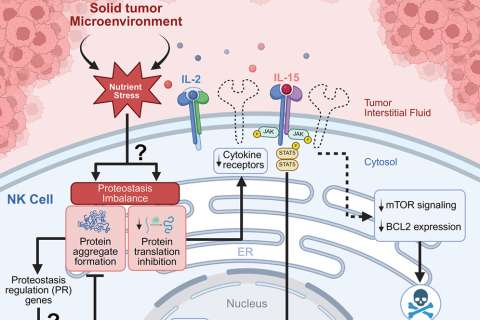Learning that you have cancer can be life-changing – but it’s not just the medical treatment and psychological toll you’ll have to navigate, it’s also the financial cost.
Will my care be covered by insurance?
How much time will I have to take off work?
How can I make ends meet without my regular paycheck?
Joni Anderson, MSW, a social worker with the Simms/Mann-UCLA Center for Integrative Oncology, conducted a webinar recently to help patients and their families make sense of medical insurance, disability coverage and other ways to cover cancer costs.
“If you have feelings and stress related to your finances, you’re not alone,” Anderson said. “We’re talking about some ways that we can kind of offset that stress, as well as where to find some support if you are having an emotional strain related to your financial situation.”
Ins and outs of insurance
Even with the best insurance, there are costs associated with cancer treatment.
It’s important to know your deductible and out-of-pocket maximum costs, Anderson said. The deductible is the amount you have to pay before insurance coverage kicks in. The out-of-pocket maximum is a fixed amount that includes the deductible and other fees, such as co-pays.
“Once you've met that out-of-pocket maximum, your insurance has to take care of the rest of your covered health care costs for that year,” Anderson said.
People undergoing treatment for cancer often have to deal with a process of pre-authorizations, denials and appeals with their insurance company, she said. Many plans require treatments to be authorized ahead of time before the insurance company agrees to cover costs.
“Oftentimes when insurance companies require pre-authorization, they can result in delayed care; sometimes abandonment of care and treatment,” Anderson said. “The good news is that, here at UCLA specifically, we have wonderful staff that assist patients with obtaining pre-authorization.”
Denials are worth appealing, she said, because insurance companies end up granting about 60% of appeals. Your health care team can help advocate for you.
Taking time off work
Many people diagnosed with cancer will need to take at least some time off from work for treatment and recovery, Anderson said.
The federal Family Leave Medical Act (FMLA) guarantees 12 weeks of unpaid leave per year with job and health insurance security for those who’ve worked for their employer for 12 months or 1,250 hours. The 12 weeks do not need to be taken all at once.
“It ensures your job security,” Anderson said. “You will not be able to be fired or laid off from your job because you took leave.”
FMLA is also available to those who need to take time off to care for a parent, child or spouse with a serious medical condition. Medical certification is required, so a health care provider would need to sign off on FMLA requests.
Employers cannot force workers to exhaust their paid sick time or vacation time before taking FMLA.
“They can ask you to take (that time) concurrently,” Anderson said. “And you might want to take them concurrently anyway, so that you're getting paid for your time off.”
For people who do not have paid sick or vacation time to use, filing for short-term disability is an option. California State Disability Insurance provides a portion of a worker’s usual pay for up to a year. People who will be away from work longer than a year may apply for long-term disability coverage through the Social Security Administration if they are older than 31 and have worked for five of the previous 10 years.
For those returning to work after treatment, the Americans with Disabilities Act protects workers against unfair employment-related decisions and provides for reasonable accommodations, which could include reduced hours, a flexible schedule or telecommuting. Employees may not need to disclose the specifics of their diagnosis to be eligible for these protections, Anderson said.
“A way you could ask, for example, is, ‘I have a medical condition that affects my _____. In order to continue doing my job, I need this reasonable accommodation,” she said.
Other financial resources
Some people may need other supplemental funds or support during treatment and recovery. There are disease-specific funds that can provide financial assistance. The American Cancer Society operates a round-the-clock hotline to help people identify available funds, Anderson said.
Various organizations, including NeedyMeds and Cost Plus Drugs, can help offset medication costs.
Other community programs offer free transportation, meals and other services to support people undergoing cancer treatment.
“I just encourage people to be creative” when considering approaches to finance their treatment, Anderson said. “And if you’re not feeling very creative, ask Simms/Mann to be creative for you.”




